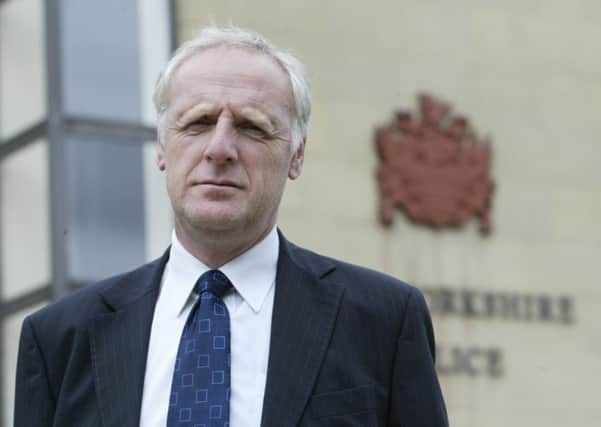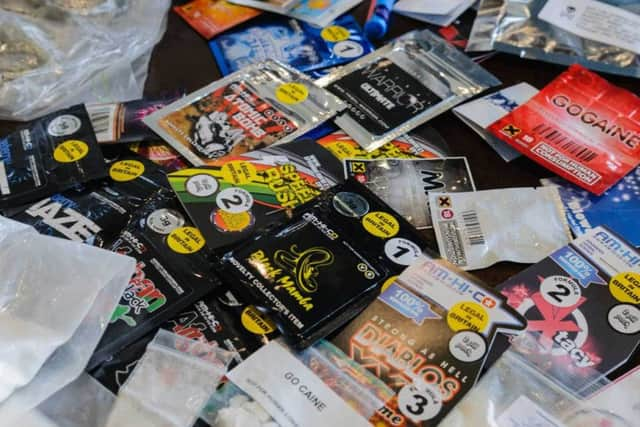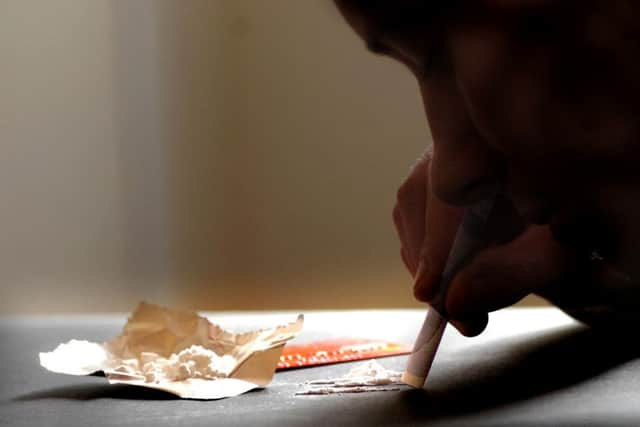Hopes for end to so-called ‘legal highs’ in West Yorkshire


It comes as the seemingly harmless new psychoactive substances (NPS) have been linked to a number of deaths in the UK.
Legal highs are an imitation of existing drugs including heroin, cocaine, speed and cannabis.
Advertisement
Hide AdAdvertisement
Hide AdWith a clever tweak in their chemical make-up, they can’t be classed as unlawful but they are just as lethal as their illicit counterparts.


The government has now proposed the Psychoactive Substances Bill which was mentioned in the Queen’s speech last week.
It means anyone found dealing or producing products which have a psychoactive effect could face a maximum seven-year prison sentence.
The ban will apply to both shops and websites but there is currently no personal possession offence. Substances such as alcohol, tobacco, caffeine, food and medical products, will be excluded.
Advertisement
Hide AdAdvertisement
Hide AdMinisters said young people who took NPS were “taking exceptional risks with their health”.


The number of incidents recorded by West Yorkshire Police involving legal highs has increased 15-fold in just three years. They recorded 441 incidents between April 2014 and March 2015, compared to 28 between April 2012 and March 2013.
Bryan Dent, West Yorkshire Police’s drugs co-ordinator, said he hoped the changes will put an end to people using the substances.
He said: “We have been running Operation Nightshot since 2012, a campaign aimed at raising awareness of the potential dangers. As part of this campaign, we have used existing legislation in innovative ways to prosecute suppliers and protect consumers.
Advertisement
Hide AdAdvertisement
Hide Ad“There is a misconception that because these substances are currently legal that they are safe to use which is simply not the case. The blanket ban will bring the substances in line with other controlled drugs and equip the police with the powers to tackle their use and supply.”
Legal highs are sold in a variety of forms including powder, pills, capsules, perforated tabs and smoking mixtures.
They cannot be labelled as being for human consumption, which means they are often marketed as plant food, bath salts or incense.
Research from the Centre for Social Justice (CSJ) showed that there were 97 recorded deaths from legal highs in the UK in 2012, rising from 12 in 2009. The CSJ, an independent think tank, said that the UK has the highest number of legal high users among young people in Europe.
Advertisement
Hide AdAdvertisement
Hide AdLast year 19 young people in Wakefield received treatment for using the products – an increase from five the previous year.
In Kirklees 36 young people were given specialist treatment for legal high use last year, compared to six in 2013.
Calderdale Council’s Lifeline Project, a drug and alcohol service, did not treat anyone under the age of 21 using legal highs as a primary substance.
Insp Ian Williams, Wakefield Police’s neighbourhood inspector, said the consequences of people taking the substances can be fatal.
Advertisement
Hide AdAdvertisement
Hide AdHe said: “I am pleased to see that the government have recognised the growing issue in communities.
“The name legal high can give the impression that they are socially acceptable when nothing could be further from the truth.
“Apart from the obvious and unknown health implications, they can and do lead to other types of crime in order to fund the habit.”
Insp Williams has now called on all retailers currently selling the products to reconsider.
Advertisement
Hide AdAdvertisement
Hide AdHe said: “This is a moral issue for our community and its young people, not just a legal one for the future.
“We need to take action now in Wakefield to stop this becoming a bigger issue as it is in other parts of the country.”
Batley Neighbourhood Policing Team co-ordinator Martyn Lee said he hoped the new legislation would help discourage people from using the products.
He said: “In Batley and Spen, there have been previous issues with use of legal highs by groups of young people in Birkenshaw and Cleckheaton. This is not to say that there has been a particular problem but more young people were travelling to these areas to meet up and socialise.
Advertisement
Hide AdAdvertisement
Hide Ad“These issues have been tackled and positive action taken against those found to be supplying the legal highs by ourselves and trading standards.”
Calderdale Neighbourhood Chief Inspector Justine Plumb said: “Calderdale doesn’t have the same issues as some of the Force’s other districts with regards to new psychoactive substances. In the event of any incidents, in conjunction with our partners, we will look at and use any tool which proves to be effective against the use of these substances.”
Officers in Morley say they devote a substantial amount of time to dealing with youths and anti-social behaviour but they say that the legal highs problem is not one they have been confronted by.
PC Matt Sedgley, from Morley Neighbourhood Policing Team (NPT) says: “It’s not something we’ve come across in Morley to be honest. If it does happen it’s not something that’s reported to us. I can’t remember coming across a case where it’s been involved. Perhaps it’s because there isn’t much of a night life scene in Morley and you’d associate legal highs with nightclubs and that’s why it doesn’t really happen.”
Advertisement
Hide AdAdvertisement
Hide AdCrime is often linked to substance use however, and PC Sedgley says that a number of incidents that are attended by officers involve people who have taken drugs or alcohol.
He said: “Sometimes it’s hard to tell what people are high on, unless they tell us. You’re not sure whether they’ve taken drugs or they’re just drunk. Cannabis is probably the most smoked illegal drug we come across. Some people aren’t even aware that it’s illegal and they think it’s legal to just consume it in their own homes.”
Drug, alcohol and mental health charity Turning Point said they have seen an increase in the number of people using NPS in the last couple of years.”
John Shaw, Turning Point’s operational manager for the Wakefield Inspiring Recovery Service, said: “We are rolling out a training scheme across the Wakefield district to frontline health staff and those working in clubs and pubs to inform them of the range of NPS out there and what to look out for. “To date we have held 29 training sessions engaging 276 people. We are also raising awareness with people who may use these substances, highlighting the dangers associated with NPS use. This has led to people contacting us for advice and a small number of people entering structured treatment.”
For more information about Turning Point call 0300 123 1912 or log onto www.turning-point.co.uk.